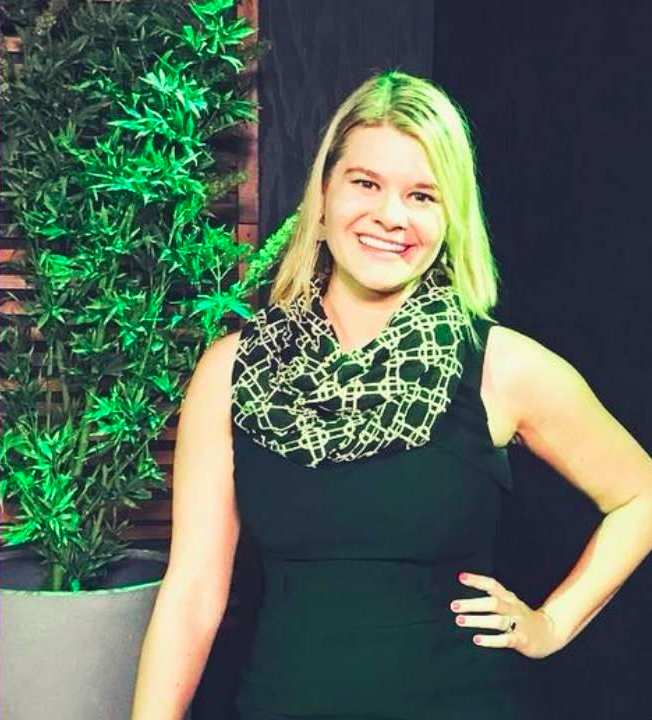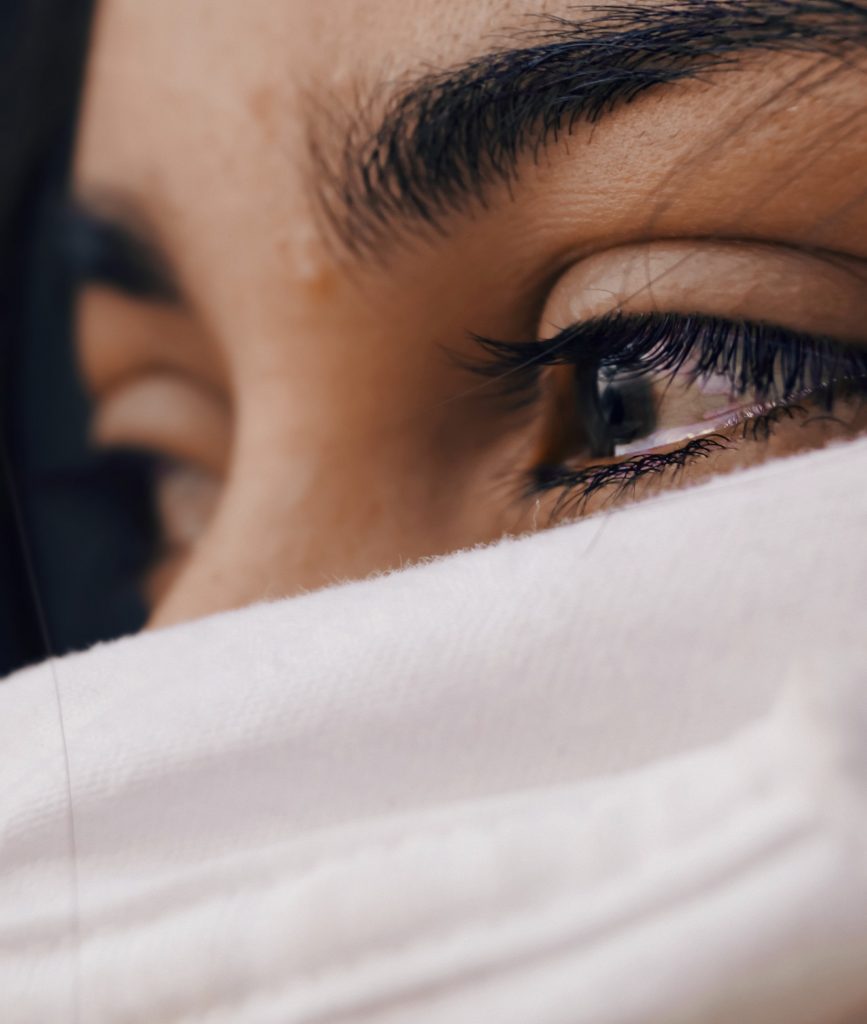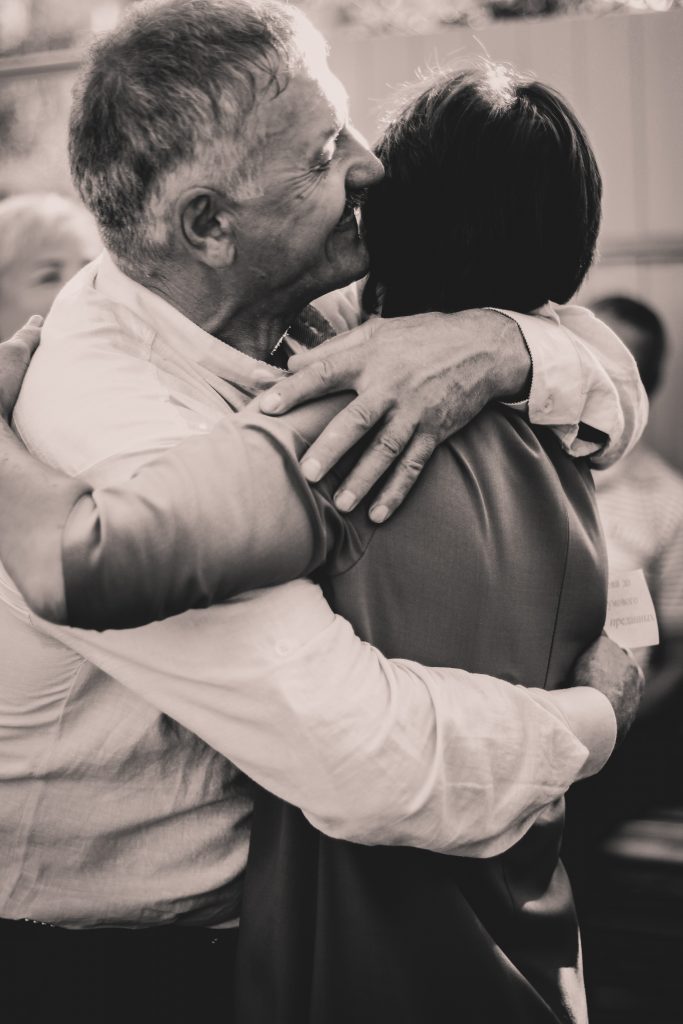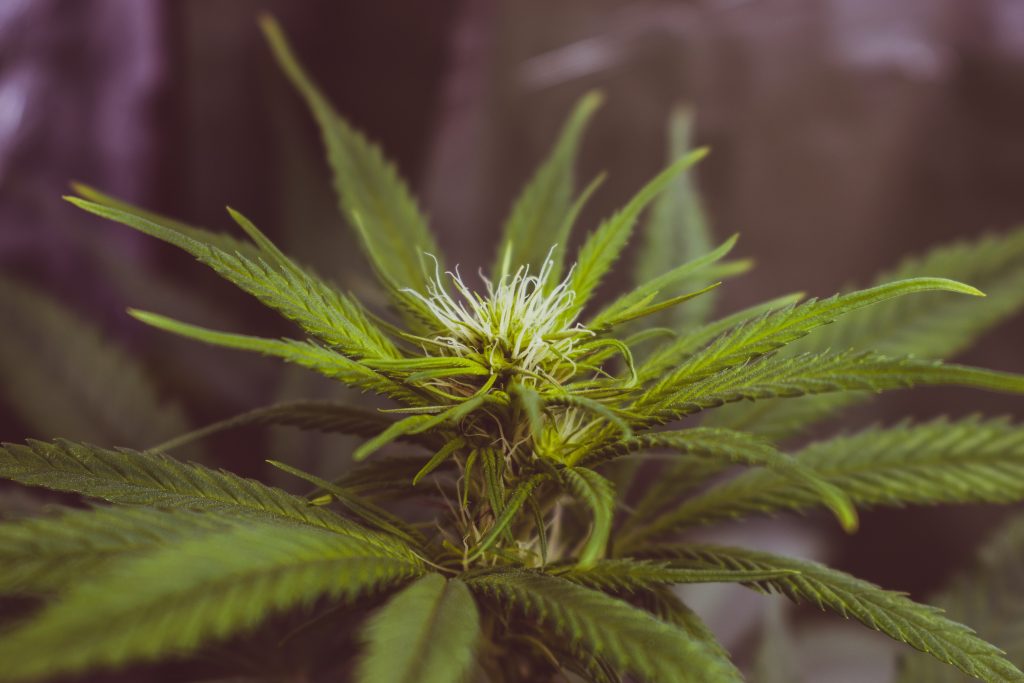Dr. Michele Ross had meant to study the ways that cannabis harms the brain while earning her PhD in Dallas. Instead, she found that cannabis might actually help grow brain cells and protect the brain. This was in 2006, when cannabis was still illegal in most U.S. States and the rhetoric from Nixon’s War on Drugs still rang true. What Dr. Ross saw in the petri dish contradicted everything she learned about cannabis while growing up. How could cannabis be helpful not harmful? But the science was undeniable.
What she saw emboldened Dr. Ross to learn more. Due to the stigmas and legal status of cannabis in 2006, she conducted her own studies and consulted researchers outside the United States, mostly in Israel and Australia, to learn more about the potentials of cannabis as medicine. It also piqued her curiosity as a patient. Dr. Ross lives with both fibromyalgia and endometriosis. The former causes patients to feel severe pain throughout their body, as well as fatigue and cognitive disruptions. Endometriosis affects one in ten women globally. It causes debilitating pain, which is concentrated in the reproductive organs, and it can lead to infertility. Both disorders have no cure. As a scientist and a patient in search of answers, Dr. Ross could not deny her research nor personal experience which proved that cannabis had the potential to significantly improve quality of life. A few years later, in 2012, she launched Infused Health, where she remains today as CEO, to share her knowledge of cannabis with patients across the world through plant-assisted therapy.

Image source.
When it comes to curiosity about cannabis, like many of us, Dr. Ross has been through the process of wondering: What product is right for me? What’s the right dose of cannabis to take? What’s the difference between THC and CBD? Is it safe to switch from my regular medication to cannabis? She shared with us her insights from both her research and her personal experience as a patient and cannabis coach who uses and teaches plant-assisted therapy. And because at 3Leaf we live for facts about cannabis, we want to share what we learned with you!
Plant-Assisted Therapy: What Is It and How Can It Benefit You?
Cannabis is portrayed today as a cure-all. But Dr. Ross explains, “that’s not how cannabis works.”
“Cannabis has phenomenal abilities to balance different neurotransmitter and hormone systems within your brain and body, but it’s not the whole package,” she tells us. “Really we need to think about cannabis as part of a holistic approach to healing a patient. So that includes changing what you’re eating, the supplements you’re taking, changing your lifestyle to incorporate self-care methods like meditation or yoga or gentle walks. It’s about changing your mindset and your approach to being sick.”
Dr. Ross and her colleagues, all certified cannabis coaches and healers, see cannabis as a tool in a wide ranging tool-kit of healing methods, which make up the therapeutic modalities of plant-assisted therapy. This form of healing and therapy pairs mindset work with natural medicines, which can include cannabis, Chinese Herbs, Ayurvedic medicine, and medicinal mushrooms like cordyceps and lion’s mane.
“There are a lot of tools in the tool box,” says Dr. Ross. “For some people cannabis may not be enough on its own, but it can be powerful when combined with another treatment modality. An example is when people take an edible and then go to a yoga class. You see them have these transformative experiences with dealing with physical and emotional pain that they didn’t have when they just practice yoga or just take an edible on it’s own.”
The misunderstandings go beyond just cannabis. There’s also a lot of misinterpretation about the cannabinoids that make up it’s healing capabilities. We’re talking about the two most popular cannabinoids derived from cannabis, THC and CBD.
THC and CBD: What Are They Good For?
The social climate that we live in today sees stress and toxins as cultural norms. We breathe polluted air, eat food that’s full of hormones and pesticides; we stare at screens all day and work jobs that require us to sit for eight hours, commute for two, and sleep for four. We absorb these environmental toxins and these stressors manifest as physical pain and emotional issues, which can eventually lead to serious diseases and cancers.
What’s the solution?
“We can actually consume cannabis,” says Dr. Ross. “When you use cannabis, you’re basically activating your body to heal itself. THC and CBD bind to cannabinoid receptors throughout our body to stop these syndromes and stop the progression of cancer. Cannabis essentially programs your body to give yourself a reboot! It’s optimizing your system, rebalancing your brain and body.”
“THC in itself is highly anti-inflammatory. It’s more powerful than Tylenol.,” says Dr. Ross. “CBD is also anti-inflammatory. When CBD binds to receptors it actually stops the production of hormones that cause inflammation and pain.”
Some Specifics on THC
“THC is great for treating pain, but many people avoid it because they don’t want to feel high,” says Dr. Ross. “So I recommend taking your THC at night and letting it work while you sleep.”

Just be sure to still take the lowest amount of THC possible. For sleep, we recommend starting with a 10mg dose, like in 3Leaf’s Coconut Oatmeal Cookie or Vegan Quinoa Granola Bite. Dr. Ross explains why:
“We know for a fact that high doses of THC can interfere with your sleep. It keeps you from getting into that deep stage within your sleep cycle. So yes, a certain dose might get you to sleep, but too high a dose of THC will interfere with you achieving a deep sleep. And for you to experience pain relief while you sleep, you need that deep, restorative sleep that occurs when you go through all the stages of your sleep cycle properly.”
Let’s Get Real About CBD
“With CBD – obviously we all know it’s amazing – it’s great for treating depression, it’s also anti-inflammatory, antioxidant, and neuroprotectant. When you take CBD it turns on hundreds of genes [that heal and protect your body], but it also turns off around a hundred harmful genes.”
The key to being a conscious consumer of CBD is to purchase products from licensed retailers, and research brands before making a purchase. On the market there are cannabis-derived CBD products and hemp-derived CBD products. Hemp-derived CBD products are not regulated to the same standard as cannabis-derived CBD products yet, so be conscious of where you purchase your products from and do your best to know where your cannabis comes from. Ask your budtender, reach out the brands, don’t be afraid to ask questions!
Finding the Right Cannabis Dose for Your Needs
The scientific community is seeing how cannabis is working as an effective treatment for a lot of diseases that don’t have solutions. In Dr. Ross’s case, she consumes cannabis to help her manage the symptoms of her fibromyalgia and endometriosis. She’s also seen cannabis improve the lives of people living with PTSD, Lyme disease, and various cancers. And, she’s seen how cannabis has saved some marriages, but we’ll get to that in a bit.
“People assume that I consume high doses because I have fibromyalgia, but that isn’t the case,” she explains. “I micro-dose with 1.5mg or 2.5mg of THC during the day because I need to control the pain from my fibromyalgia. But I get my real medical dose at night. I’ll take 15mg or 20mg, depending on my pain level. Even when you need to take a higher dose, still go for the lowest dose possible so that you can avoid those adverse effects. Do what works for you. Some people always think more is better, but that isn’t really the case.”

If you’re new to cannabis, start with a low dose and increase slowly. Edibles take 30 to 90 minutes to take effect, so wait at least two hours before ingesting more. And remember, you can always eat more, but you can’t eat less. Dr. Ross tells us that her patients laugh when she tells them she’s starting them on one milligram of THC. But the point of this is to see how you feel before increasing your dose. Your body can experience the full range of medical benefits of cannabis starting with a dose around 2.5mg. You don’t need to necessarily feel the psychoactive, elevating effects in order to know that the THC is working, unless that’s what you’re looking for. Again, the point is to find what works for you through experimenting. Listen to your body and consume consciously.
Below, Dr. Ross shares her recommendations for dosing at different times of the day.
Dosing for Day Time
“I find that for people who are anxious, a micro-dose of cannabis is ideal for the day time. A micro-dose means the amount that you need in order to get the medical benefits from cannabis without getting high. The threshold is different for everyone. For some people it’s 2.5mg, for others it’s 5mg, and for some it’s 10mg. You won’t really know until you try. But that’s why you should start with the lowest dose as possible and then work your way up.”

Dosing for Night Time
For many of us, a cocktail or a glass of wine at the end of the day is a welcome ritual. It helps us unwind and occasionally puts us to bed. But alcohol causes inflammation, which is extremely harmful for people living with a chronic illness like Gout or arthritis. Dr. Ross recommends switching from alcohol to edibles for a few different reasons:
- Edibles offer long-lasting effects because it takes longer for your body to digest and process the cannabis. So you can enjoy relaxing effects that will take you into a restful sleep.
- Cannabis is anti-inflammatory, so it’s healing you rather than hurting you.
- Edibles are a delicious way to treat yourself at the end of the day!
Relationship Troubles? Have an Edible
We have a little-known-fact to share, straight from the source. Dr. Ross used to be a relationship coach when she first started cannabis coaching through her organization, Infused Health. Below, she tells us why she incorporates cannabis into her talks with couples.
“I’ve seen how edibles can help couples navigate challenging times and help them reconnect and feel closer in new ways. When I work with couples who are having relationship issues, I recommend dosing with an edible together. It allows you to connect with your partner because it takes down those emotional barriers. Cannabis is also great for elevating orgasms. It facilitates the release of oxytocin, which is a hormone that’s released when we orgasm or when we breastfeed – it helps us bond. But what this means for our relationship with our partner is that cannabis can help us bond in a completely different way.”

“In relationships, things can get murky. We stop talking to our partner. We’re no longer sexual with our partner. We become like roommates. And that’s because relationships take years of work. There are peaks and valleys. Cannabis can help facilitate open conversation with our partner, and also help us see our partner in a new way. I think a lot of people are finding that they rediscover their partner through cannabis. I hear things like, ‘I didn’t know you wanted to go to art museums,’ or, ‘I didn’t know you like that kind of music.’ Cannabis facilitates conversation, and for many partners, the conversation can be the hardest part about being in a relationship sometimes.”
Why Should We Purchase Products from the Legal Cannabis Market?
Like all of us at 3Leaf, Dr. Ross cannot stress enough how important it is to purchase cannabis-infused products from the legal market. When you purchase products from the legal market through licensed cannabis retailers, you ensure that you’re consuming safe, lab-tested products. Consuming lab-tested products is so important for your health, because these tests ensure that there are no heavy metals, pesticides, or harmful microbes in your cannabis-infused products.
A highlight, and an important one, that we learned in our conversation with Dr. Ross:
“Heavy metal testing, which includes mercury and lead, is so important because hemp plants and cannabis plants actually pulls up toxins from the ground when they grow.”

“If you are a chronic pain patient or if you have an auto-immune disorder, you can be extremely sensitive to heavy metals or toxins,” says Dr. Ross. “So it’s really important for people to buy from the regulated market. Buy from licensed dispensaries. And also know that not every dispensary is regulated. There are a lot of products on the market. Some are better than others, so it’s really up to the consumer to vet the brands and not just listen to your budtender.”
Here are a few great resources to review cannabis products and find licensed dispensaries near you:
What to Know Before Making the Switch from Prescription Medication to Cannabis
In Dr. Ross’s experience, she’s seen thousands of patients make the switch from prescription medication to cannabis. People on antidepressants, pain medications, and seizure drugs have all improved their quality of life by consuming cannabis rather than prescription drugs. Their symptoms are manageable, and they can consume a lower dose less often.
“People think that cannabis, especially CBD, is just like a vitamin,” says Dr. Ross. “If you want to treat a serious condition or chronic illness with cannabis, please speak with a cannabis clinician or health coach first. People with cancer have different needs than people with PTSD, and yes cannabis can effectively meet each of their needs, but it’s about finding what works for you personally, and there are incredible people that can help you do so.”
Click the links to learn more about Dr. Michele Ross and the incredible work she’s doing through Infused Health. If you have questions, please reach out to us at [email protected]. And please share this post if you liked it! Forward it to your friends! Let’s keep sharing facts about cannabis together.
—Thank you for taking the time to read our post! To keep up with exciting 3Leaf news, including new product launches, subscribe to our newsletter and follow us on Instagram, Facebook, and Twitter.